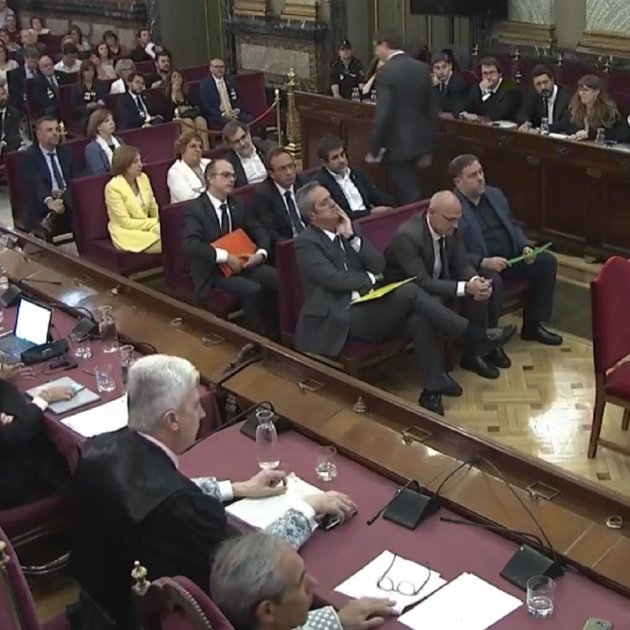Four months after it began, the Catalan independence trial has been suspended as the judges retire to consider their verdict.
Behind us are more than 450 witnesses and three days of photographic evidence, great arguments to dispel the claims of violence and ludicrous claims of coups d'état.
The hearings have ended as they began, with speeches from the 12 defendants stating their innocence and telling the court they believe they are political prisoners.
The judges, led by Manuel Marchena, now have to decide on their sentences. Those are not expected to come before the summer break, nor are the prisoners expected to be released in the mean time. When the verdict comes, because it will be from the Supreme Court, there will be no option to appeal within Spain, so the case would have to be taken to Europe.
As the trial drew to a close, the public prosecution service decided to stick to its original sentencing requests and the charges of rebellion: 25 years in prison for Oriol Junqueras, 17 years for Carme Forcadell, Jordi Sànchez and Jordi Cuixart. 16 years for Jordi Turull, Joaquim Forn, Raül Romeva, Dolors Bassa and Josep Rull, and 7 years for Meritxell Borràs, Carles Mundó and Santi Vila.
The state's legal service has also stood by its original charges, the most serious of which is sedition, and its requested sentences of 12 years in prison for Junqueras. They want 10 years for former speaker of the Catalan Parliament Forcadell and 8 years each for civil society leaders Cuixart and Sànchez, to give the longest ones.
The private prosecution in the case, meanwhile, under far-right political party Vox, had made initial sentencing requests for up to 74 years, which they have also now confirmed. The only defendant exempt is former minister Santi Vila who resigned the day before the declaration of independence in the Catalan Parliament; they have dropped the accusations of criminal organisation and misuse of public funds he faced, leaving only disobedience, which wouldn't imply a prison sentence.
Defence lawyers, meanwhile, called in their final reports for their clients to be acquitted, arguing there is a lack of evidence for the charges under question and that the public prosecution had handled the case ineptly.
